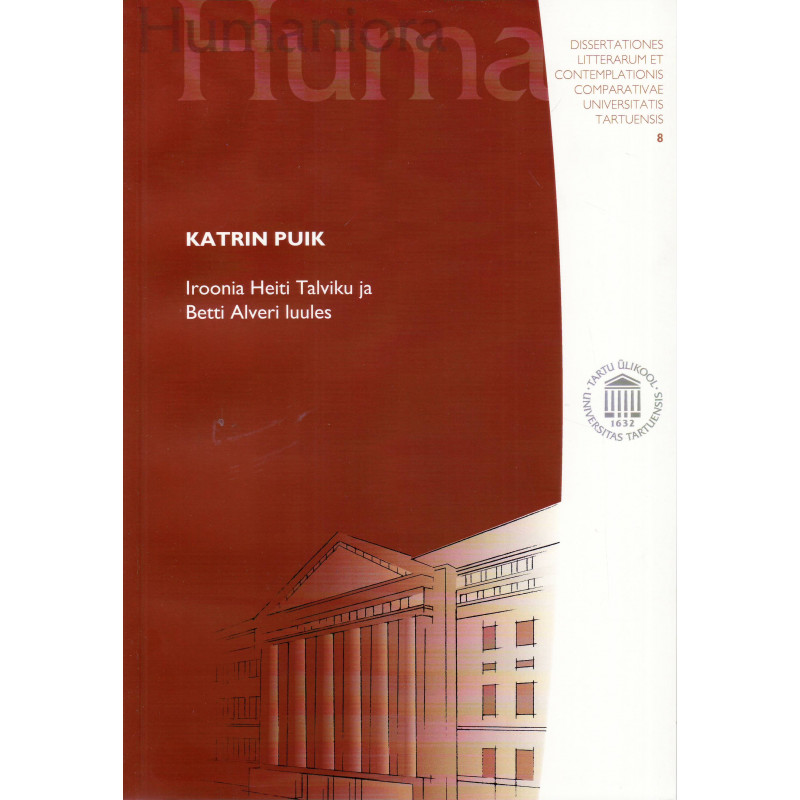



Katrin Puik
Tartu : Tartu Ülikooli Kirjastus, 2009
190 p. : ill.
Dissertationes litterarum et contemplationis comparativae Universitatis Tartuensis ; 8
ISBN 9789949191529
Paperback and in good condition book
Irony in the poetry of Heiti Talvik and Betti Alver
The aim of the present work is to give an introduction of the concept of irony and to analyse irony in the poetry of two classic Estonian poets: Heiti Talvik and Betti Alver. Following the example of many ironologists the distinction between two basic types of irony is made: verbal or rhetorical or stylistic irony and situational irony. Therefore the first part of the work is titled “Irony as a device” and the second one is called “Irony as a thought”. The first part tries to find and explain the functioning mechanisms of the verbal irony. The identified examples are classified according to their semantic and pragmatic nature, for example instances of classical rhetorical irony, ironic comparisons, paradigmatic reducing levelling, ironic metonymy, irony as mention, ironical role-plays etc. The first part of the work concludes with a short discussion on Socratic irony and its possible relations to Talvik’s and Alver’s poetry. Second part deals with the sensibility of situational irony in Talvik’s and Alver’s poetry, as a theoretical framework Friedrich Schlegel’s theory of romantic irony is used. It is said that the sense of situational irony is the base of romantic irony, so the poetry of Talvik and Alver is first analysed in this respect. Next step is to ask whether in Talvik’s and Alver’s poetry there is something that would resemble romantic irony in its most known aspects, that is breaking the fictional illusion and making metapoetic statements. To conclude it is necessary to consider whether Alver and Talvik step out and fight the existential irony they have noticed around them and whether among their weapons there is also irony. Irony has been judged differently. At times it has been considered as something close to lying, hypocrisy, slyness, cowardice, in modern age irony is mostly well reputed, expressing the ambivalence, multi-layeredness and disperseness of modern situations which in some aspects is already present in Talvik’s and Alver’s poetry from the years 1930–1940